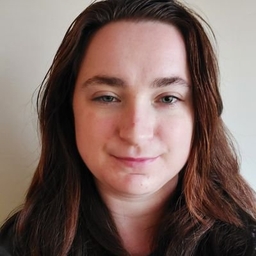
Rachel Fieldhouse
Reporter at Nature
Reporter at Nature News Asia Pacific. Cross-stitch enthusiast, band geek, and fan of the Oxford comma. Bylines at AusDoc, The Local Rag and more
Articles
-
1 week ago |
nature.com | Rachel Fieldhouse
Missile attacks have damaged laboratories and hampered scientists’ ability to do research in both Israel and Iran, as the conflict between the two countries enters its fifth day. In Iran, at least 224 people have been killed; in Israel, 24 have been killed, according to media reports. Israel launched strikes against several Iranian cities early on 13 June, targeting nuclear facilities and killing several Iranian commanders and nuclear scientists.
-
1 week ago |
scientificamerican.com | Heidi Ledford |Rachel Fieldhouse
An emergency-room doctor, critics of COVID-19 vaccines and an obstetrician who advises a supplement company are among the advisers handpicked by vaccine sceptic Robert F. Kennedy Jr, the head of the US Department of Health and Human Services (HHS), to provide advice on vaccines to the federal government.
-
2 weeks ago |
nature.com | Heidi Ledford |Rachel Fieldhouse
An emergency-room doctor, critics of COVID-19 vaccines and an obstetrician who advises a supplement company are among the advisers handpicked by vaccine skeptic Robert F. Kennedy Jr, the head of the US Department of Health and Human Services (HHS), to provide advice on vaccines to the federal government.
-
3 weeks ago |
scientificamerican.com | Rachel Fieldhouse
A Japanese spacecraft has probably crashed on the Moon, the second failed landing attempt for Tokyo-based private firm ispace. The HAKUTO-R Mission 2 (M2) lander — also called Resilience — began its landing sequence from a 100-kilometre-altitude orbit at 3.13am local time on 5 June. The craft was due to land near the centre of Mare Frigoris (Sea of Cold) at 4.17am.
-
3 weeks ago |
nature.com | Rachel Fieldhouse
A Japanese spacecraft has probably crashed on the Moon, the second failed landing attempt for Tokyo-based private firm ispace. The HAKUTO-R Mission 2 (M2) lander — also called Resilience — began its landing sequence from a 100-kilometre-altitude orbit at 3.13am local time on 5 June. The craft was due to land near the centre of Mare Frigoris (Sea of Cold) at 4.17am.
Try JournoFinder For Free
Search and contact over 1M+ journalist profiles, browse 100M+ articles, and unlock powerful PR tools.
Start Your 7-Day Free Trial →X (formerly Twitter)
- Followers
- 11
- Tweets
- 119
- DMs Open
- No

The ispace team lost communication with the Resilience lander and are investigating why that happened 🧪🚀 My latest for Nature

A Japanese spacecraft has probably crashed on the Moon, the second failed landing attempt for Tokyo-based private firm ispace https://t.co/fABP4Zhlk6

RT @SciComm_India: #ScienceNews Black Death bacterium has become less lethal after genetic tweak. 🔴Reducing the number of copies of one gen…

A trial of CAR-T-cell therapy is one of the first to show the cancer-fighting treatment is effective against solid tumours. Presented at #ASCO25 last weekend, the therapy could be a new option for people with advanced disease. My latest for Nature https://t.co/RxiCiXL9p0
